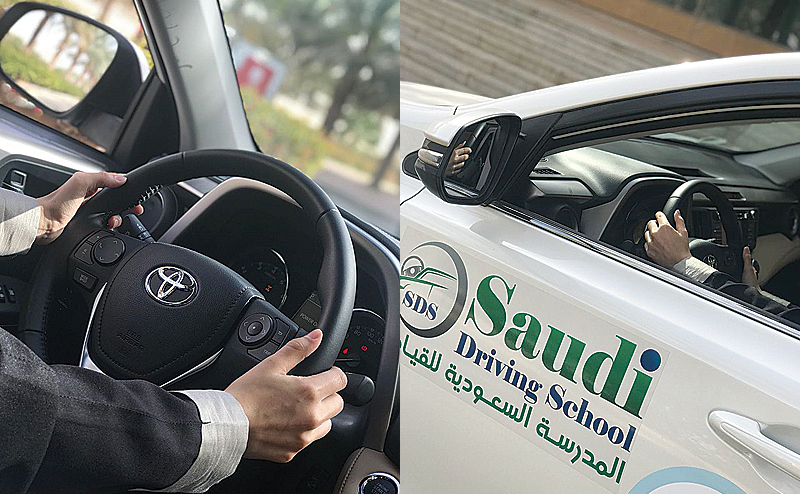Social status quo still differs from one area to another
RIYADH: A few years back it would have been unfathomable for women in Saudi Arabia to drive their vehicles on the streets of the Kingdom. After King Salman Bin Abdulaziz issued a decree to allow women's driving on September 26, 2017, which came to force on June 24, 2018, an increasing number of Saudi women began to exercise their right to own and drive automobiles, a matter leading to drastic changes within main cities of the Kingdom.
On the commercial and business level, advertisements began to show up catering to the needs of Saudi female drivers. Auto-shops, garages, and carwashes also began to assign spaces for women to rest while their cars were fixed and cleaned. Speaking on this issue, Mishaal Al-Tamimi, a repair-shop owner, estimated that five percent of his clientele were women since the royal decree was approved. As the new wave of female clients began to come, the shop dedicated a section for women to rest as repairs on their cars were done, he said, affirming that steps were taken on the shop's part to ensure that they were comfortable.
Meanwhile, Humoud Sayer observed that the situation in big cities was different than in small towns and districts, with less women drivers seemingly seen in the latter locations. The social status quo differs from one area to another in Saudi Arabia and depending on each individual case, women were allowed to drive to work, schools, shops and so on, said Sayer who indicated that some men preferred that their wives would drive their own vehicles to save time and energy.
While men's input on the matter was appreciated, a number of Saudi women gave their impressions on the relatively new situation. Saudi society's acceptance of women drivers is on the rise and that is evident in the number of drivers, said Moudhi Ali. Ali did not hide the fact that she was apprehensive when deciding to drive; however, the matter changed with what she saw as a need for women to drive and attend to their own businesses. As for hardship, Ali said that she did not face much since the decree was implemented a year ago, but she stressed that it was important to abide by traffic rules and regulations. Officials should also provide more spaces and facilities for women to park at work since now there were increasing numbers of female employees heading to their jobs, she noted.
Razan Mohammad, a fellow driver, claimed that the number of women drivers in the Kingdom was considerably high, basing her statement on what she saw on the road. A large number of women in Saudi Arabia obtained driving licenses while abroad, which made their transition to Saudi roads much smoother, she said, adding that the royal decree to allow women to drive was the correct decision. In an effort to guide and educate women road users, the Saudi Ministry of Transportation issued guidelines to help the increasing number of female drivers to better traverse roads whether they were local streets or highways. For those who are still on the fence concerning driving, Saudi authorities approved a measure enabling ride-hailing services driven by women to allow only female clientele to be chosen for rides. - KUNA










